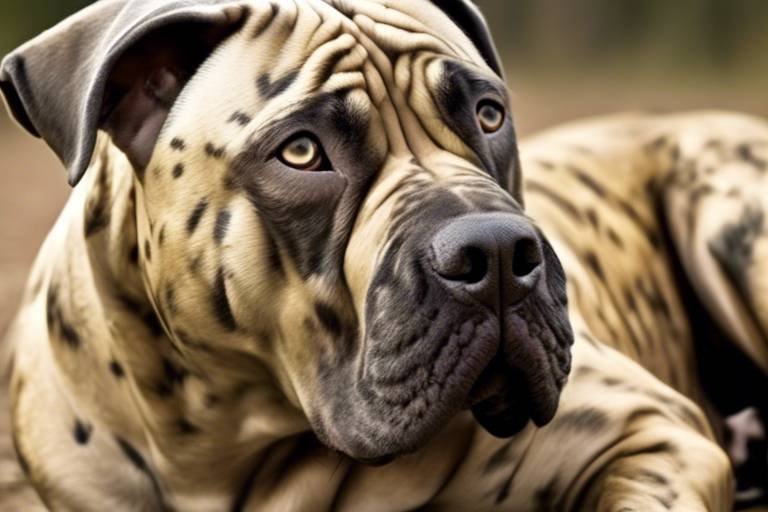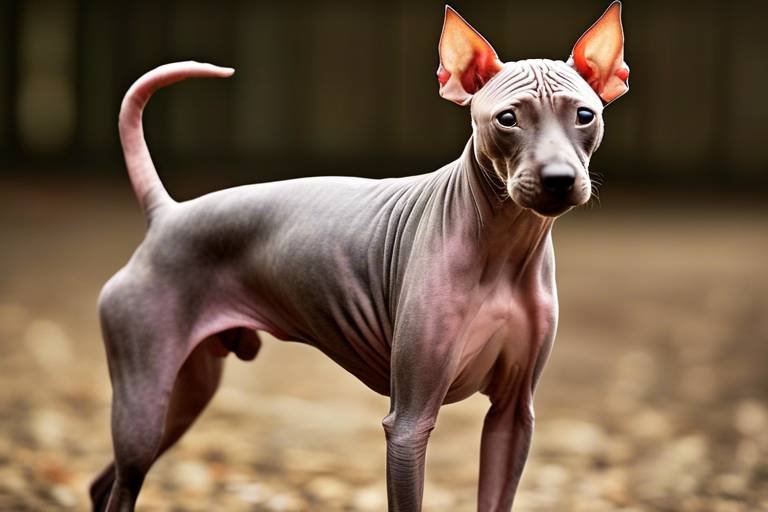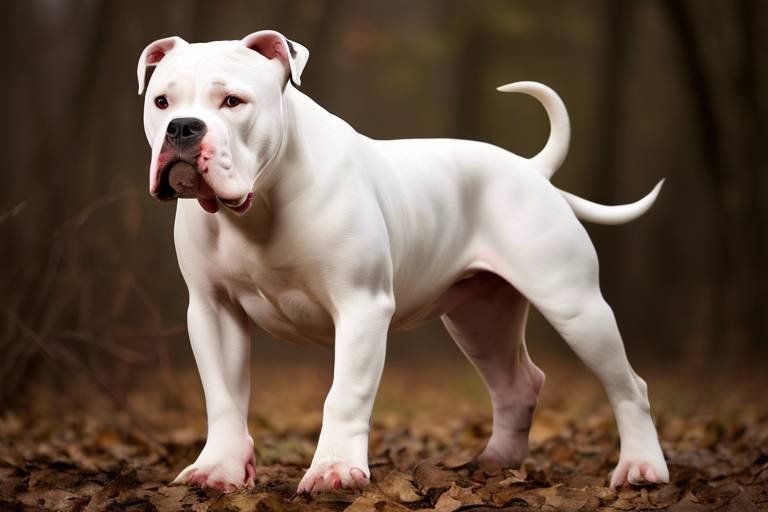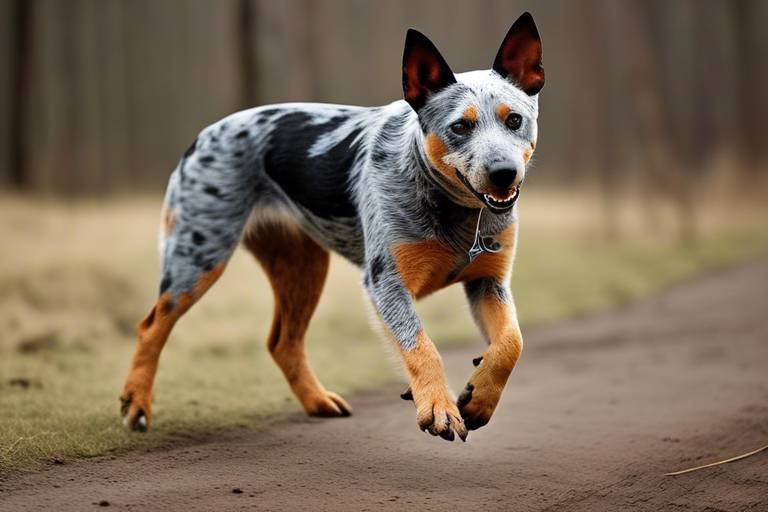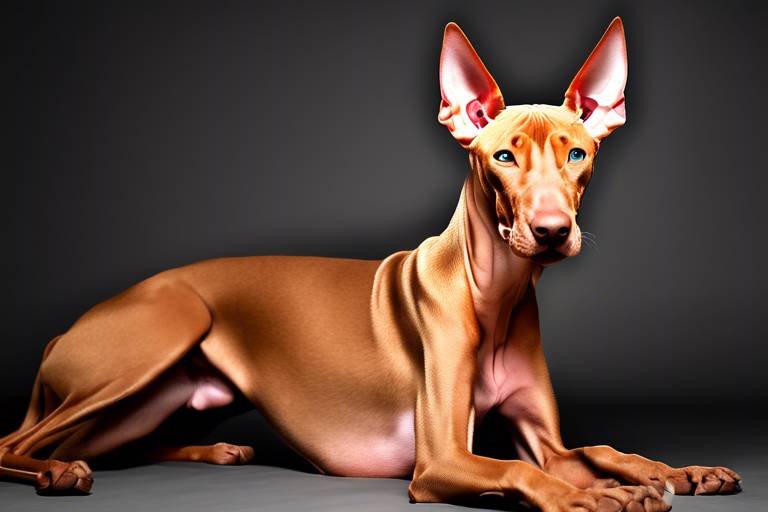The Affectionate Nature of the Dogo Canario
The Dogo Canario, also known as the Canary Mastiff, is not just a breed; it's a loyal companion that embodies affection and protective instincts. Imagine a gentle giant, always ready to stand by your side and offer warmth, love, and security. This breed is a blend of strength and tenderness, making it a perfect addition to families and individuals alike. Whether you're an active family with children or a single person seeking a loyal friend, the Dogo Canario stands out as an ideal choice. Their innate ability to bond with their humans is what truly sets them apart in the canine world.
Originating from the Canary Islands, the Dogo Canario has a rich history that reflects its nurturing nature. Historically bred for guarding and hunting, these dogs have developed a strong protective instinct. However, this protective nature does not overshadow their affectionate temperament. In fact, many owners describe their Dogo Canarios as gentle giants that thrive on love and companionship. They are known to be especially affectionate with children, often forming strong bonds that last a lifetime. This unique combination of traits makes the Dogo Canario a breed that is not only capable of providing protection but also overflowing with love and loyalty.
As we dive deeper into the characteristics of the Dogo Canario, it's essential to understand that their affectionate nature is not just a coincidence; it is a product of their upbringing and socialization. Just like how a plant needs the right amount of sunlight and water to flourish, Dogo Canarios need proper guidance and exposure to develop their affectionate traits fully. The more love, attention, and training they receive, the more they thrive as loving companions. So, if you're considering welcoming a Dogo Canario into your home, be prepared for a journey filled with affection, loyalty, and perhaps a bit of mischief!
- Are Dogo Canarios good with children? Yes, they are known to be gentle and protective, making them great companions for kids.
- How much exercise do Dogo Canarios need? They require regular exercise to keep them healthy and happy, ideally daily walks or playtime.
- Do Dogo Canarios get along with other pets? With proper socialization, they can coexist well with other pets in the household.
- How do I train a Dogo Canario? Positive reinforcement techniques work best, rewarding them for good behavior to strengthen your bond.
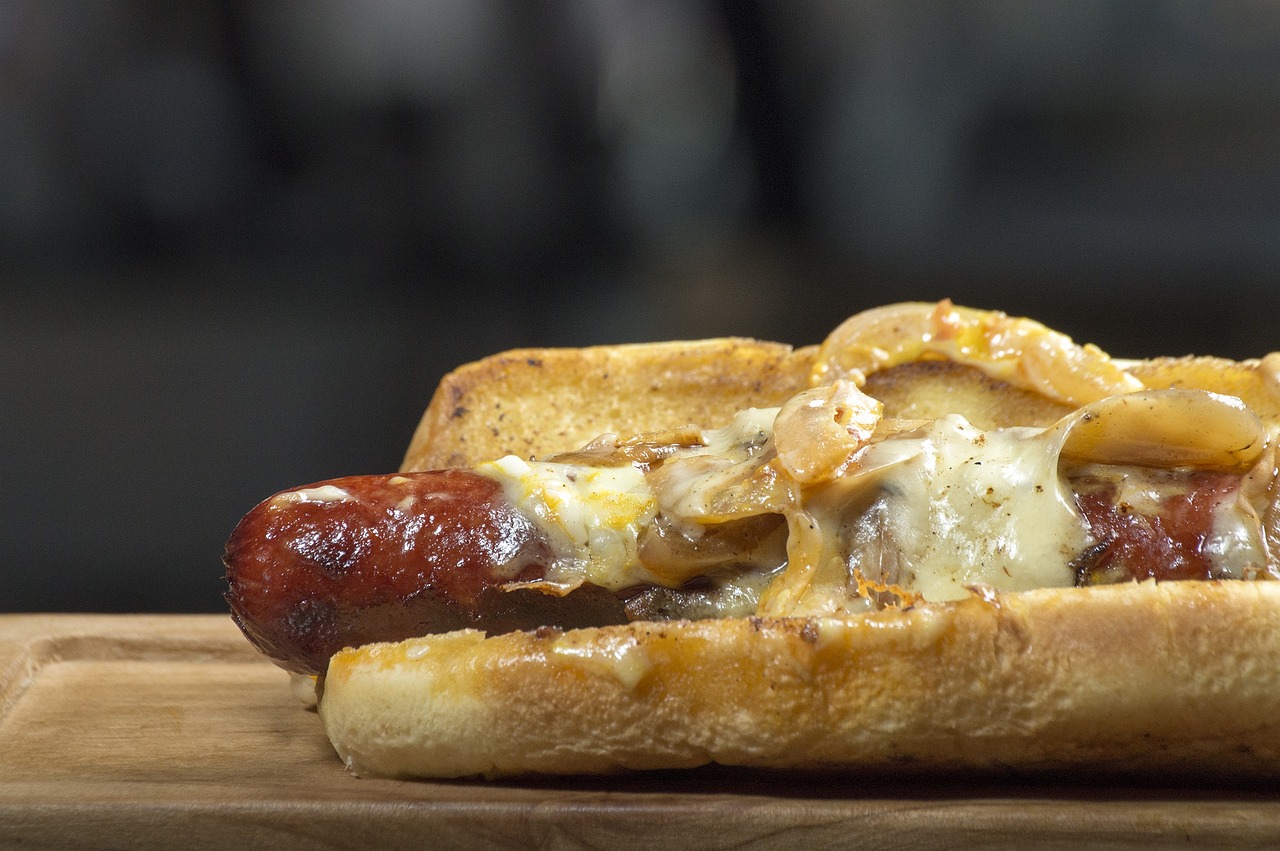
Understanding the Dogo Canario
The Dogo Canario, also known as the Canary Mastiff, is a breed that commands respect with its impressive stature and powerful build. Originating from the Canary Islands, this breed has a rich history that intertwines with the island's culture and landscape. Historically, these dogs were bred for various purposes, including guarding livestock and hunting large game. However, as times have changed, the Dogo Canario has transitioned into a beloved family companion, known for its affectionate and loyal temperament.
What truly sets the Dogo Canario apart is not just its physical prowess but also its deep-rooted loyalty and protective instincts. This breed has a natural inclination to bond with its family, making it an ideal choice for those seeking a loving and devoted pet. Understanding the Dogo Canario means recognizing its dual nature: a fierce guardian and a gentle companion. While they are known for their strength, they also possess a surprisingly gentle demeanor towards their loved ones, especially children. This makes them a wonderful addition to families looking for a dog that can both protect and nurture.
As you delve deeper into the characteristics of the Dogo Canario, you'll find that they thrive on companionship and interaction. They are not the type of dog to be left alone for long periods; they need engagement and love to flourish. Their affectionate nature can be nurtured through various activities, including playtime, training sessions, and simple family bonding moments. This breed is not just a pet; they are a part of the family, and they will show their affection in ways that are both heartwarming and profound.
Moreover, the Dogo Canario's history informs its modern temperament. Bred to work alongside humans, these dogs have developed a keen sense of understanding and empathy towards their owners. They are incredibly perceptive, often sensing changes in mood and environment, which enhances their ability to provide comfort and companionship. This breed's affectionate nature is a testament to their history of loyalty and partnership with humans, making them not just a pet but a true family member.
In summary, understanding the Dogo Canario involves appreciating its rich heritage, recognizing its dual nature as a protector and a gentle companion, and acknowledging its need for social interaction and bonding. As you embark on this journey with a Dogo Canario, you'll discover a loyal friend who is ready to shower you with love and affection.

Temperament Traits
The Dogo Canario is not just a breed; it's a loyal companion that embodies a unique blend of affection and protection. Known for their strong build, these dogs also possess a heart full of love for their families. They are often described as gentle giants, showcasing a temperament that is both affectionate and devoted. Their loyalty is unmatched, making them a popular choice for families looking for a loving pet that can also provide a sense of security.
One of the most remarkable aspects of the Dogo Canario's temperament is its protective instincts. These dogs have a natural tendency to guard their loved ones and their territory. This protective nature doesn't mean they're aggressive; rather, they are known to be calm and composed, always assessing situations before reacting. For instance, if a stranger approaches, a Dogo Canario might stand tall and alert, but with proper socialization, they can learn to distinguish between friends and foes. This ability to assess situations makes them excellent family dogs, as they can be both playful and vigilant.
Moreover, Dogo Canarios are incredibly gentle with children and other pets when properly socialized. Their affectionate nature shines through in their interactions, often displaying a playful demeanor that can melt anyone's heart. They thrive on companionship and enjoy being part of family activities, whether it's going for a walk, playing fetch, or simply lounging on the couch. Their desire to be close to their humans fosters a strong bond, making them feel like a true family member.
It's essential to recognize that while Dogo Canarios are generally affectionate, their temperament can vary based on several factors, including genetics, upbringing, and socialization. To ensure your Dogo Canario grows into a well-adjusted adult, early socialization is crucial. This includes exposing them to various environments, people, and other pets. The more experiences they have, the more confident and affectionate they will become.
In summary, the Dogo Canario's temperament traits are a beautiful combination of affection and protection. They are loyal companions that require love and attention in return for their unwavering devotion. By understanding their needs and nurturing their affectionate nature, you can cultivate a relationship that is rewarding for both you and your furry friend.
- Are Dogo Canarios good with children?
Yes, Dogo Canarios are known for their gentle demeanor with children, especially when they are socialized from a young age. - How much exercise do Dogo Canarios need?
They require regular exercise to stay healthy and happy, including daily walks and playtime. - Can Dogo Canarios be left alone for long periods?
While they can tolerate some alone time, Dogo Canarios thrive on companionship and should not be left alone for extended periods.
Socialization Needs
When it comes to the Dogo Canario, socialization is not just a suggestion; it's a necessity. These magnificent dogs, with their powerful build and protective instincts, thrive in environments where they're exposed to various people, pets, and experiences. Think of socialization as the foundation of a house; without it, everything else might crumble. A well-socialized Dogo Canario is not only more confident but also more affectionate, making them a joy to have around.
Starting socialization early is crucial. Puppies are like sponges, soaking up everything around them, and this includes their interactions with the world. Introducing your Dogo Canario to different environments—like parks, busy streets, and even crowded events—can help them develop a well-rounded personality. This exposure teaches them how to react to different stimuli and reinforces their affectionate nature. For instance, a Dogo Canario that has met various people and pets is less likely to be overly protective or aggressive, as they learn that the world is a friendly place.
But socialization doesn't stop once your Dogo Canario reaches adulthood. Continuing to expose them to new experiences and interactions is essential. Regular trips to the dog park, playdates with other dogs, or even casual strolls around the neighborhood can significantly enhance their social skills. It's like keeping a garden healthy; you need to keep watering it and ensuring it gets enough sunlight. The more varied their experiences, the more adaptable and affectionate they will become.
Here are some effective socialization techniques to consider:
- Start Early: Begin socialization when your Dogo Canario is a puppy, ideally between 3 to 16 weeks old.
- Positive Experiences: Ensure that all interactions are positive. Use treats and praise to reward good behavior.
- Variety is Key: Expose them to different environments, sounds, and people to broaden their experiences.
- Controlled Settings: Use controlled environments for introductions to new pets or people to ensure safety and comfort.
In conclusion, the affectionate nature of the Dogo Canario is significantly influenced by how well they are socialized. By investing time and effort into their social development, you not only enhance their ability to interact positively with the world but also deepen the bond you share with them. Remember, a well-socialized Dogo Canario is a happy, loving companion that can thrive in any family setting.
Early Socialization Tips
When it comes to nurturing the affectionate nature of a Dogo Canario, early socialization is absolutely crucial. Think of it as laying the foundation for a beautiful home; without a solid base, everything else can crumble. Start by introducing your Dogo Canario to a variety of environments, people, and other animals. This exposure helps them learn how to interact in different situations, ultimately shaping their personality into that of a confident and loving companion.
One effective way to ensure your Dogo Canario is well-socialized is by enrolling them in puppy classes. These classes provide a structured environment where your pup can meet other dogs and people, allowing them to learn appropriate behaviors. Not only will your Dogo Canario gain valuable social skills, but you’ll also have the opportunity to connect with other dog owners who can share insights and experiences. It's a win-win!
Another tip is to expose your Dogo Canario to various sounds and sights. For example, take them on walks in busy areas where they can hear traffic, see children playing, and encounter different types of people. This kind of exposure can prevent fearfulness later in life. Remember, the goal is to create positive associations with these experiences, so always reward your pup with treats or praise when they remain calm and curious.
It's also important to invite friends and family over to meet your Dogo Canario. This practice not only helps your dog become comfortable around new people but also reinforces their affectionate nature. Encourage guests to offer treats and engage in playtime; this fosters a sense of trust and love between your dog and others. The more positive interactions they have, the more they will thrive in social settings.
Lastly, don’t underestimate the power of routine. Establishing a consistent schedule for socialization activities helps your Dogo Canario know what to expect. Whether it’s a weekly trip to the dog park or daily walks in different neighborhoods, consistency breeds familiarity and comfort. By making socialization a regular part of their life, you’re not just raising a well-adjusted dog; you’re nurturing a loving companion who will be a joy to have around.
Ongoing Socialization Practices
Keeping your Dogo Canario socialized throughout its life is not just important; it's essential for maintaining its affectionate nature and adaptability. Think of socialization as a lifelong journey rather than a one-time event. Just like us, dogs thrive in environments where they feel comfortable and secure. Regular exposure to new experiences, people, and other animals will help your Dogo Canario remain friendly and confident.
One effective way to ensure ongoing socialization is by incorporating structured activities into your dog's routine. For instance, consider enrolling your Dogo Canario in obedience classes or group training sessions. These settings provide a fantastic opportunity for them to interact with other dogs and humans while learning essential commands. It’s like a social club where they can meet new friends while honing their skills!
Another method is to regularly visit dog parks or community events where dogs are welcome. These outings can be exciting for your Dogo Canario, allowing them to engage with different breeds and personalities. The more diverse the interactions, the more adaptable and well-rounded your dog will become. However, always monitor these interactions to ensure they remain positive and safe.
Additionally, consider inviting friends and family over to your home. This not only helps your Dogo Canario associate new people with positive experiences but also reinforces its protective instincts in a controlled environment. Remember, a well-socialized Dogo Canario will be more relaxed and affectionate, making it a joy for everyone involved.
Lastly, don’t forget about the power of daily walks. These outings provide a great opportunity for your Dogo Canario to explore the neighborhood and meet new people. Whether it’s a quick stroll around the block or a longer hike, these adventures are perfect for keeping your dog engaged and happy. Just like us, dogs need their daily dose of fresh air and new sights!
In summary, ongoing socialization practices are crucial for nurturing the affectionate nature of your Dogo Canario. By providing regular opportunities for interaction, training, and exploration, you’ll cultivate a loving and well-adjusted companion that brings joy to your life and those around you.
- How often should I socialize my Dogo Canario?
It's recommended to socialize your dog regularly, ideally every week, to keep them comfortable with new experiences. - Can I socialize my Dogo Canario with older dogs?
Yes, older dogs can be great companions for socialization, but ensure that the interactions are positive and supervised. - What if my Dogo Canario shows signs of aggression during socialization?
Consult a professional dog trainer or behaviorist to address any aggressive tendencies while socializing. - Are there specific activities that are best for socializing my Dogo Canario?
Group training classes, dog parks, and community events are excellent for socialization.
Bonding with Your Dogo Canario
Building a strong bond with your Dogo Canario is not just a luxury; it's a necessity. These magnificent dogs, known for their loyalty and protective instincts, thrive on connection and affection from their owners. Imagine your Dogo Canario as a loyal knight, always ready to defend its castle (that's you!) while also being the gentle giant that cuddles with the family. The key to fostering this bond lies in understanding their needs and engaging in activities that promote mutual trust and affection.
One of the most effective ways to bond with your Dogo Canario is through consistent daily routines. Dogs are creatures of habit, and establishing a routine helps them feel secure and loved. Whether it's a morning walk, playtime in the yard, or quiet evenings on the couch, these moments create a rhythm that your dog will come to cherish. Moreover, incorporating training sessions into these routines can enhance your relationship. Training isn't just about obedience; it's an opportunity for you and your dog to communicate and understand each other better.
Engaging in interactive play is another fantastic way to strengthen your bond. Dogo Canarios are playful and energetic, so activities like fetch or tug-of-war can be both fun and beneficial. These games not only provide physical exercise but also stimulate their minds, making them happier and more relaxed. The joy they exhibit during playtime is a clear indicator of their affection and trust in you as their owner.
Additionally, don’t underestimate the power of quality time. Simply sitting together, petting them, or talking to them in a soothing voice can work wonders. Dogs are incredibly perceptive and can sense your emotions. By spending time with them, you reinforce their sense of belonging and love. Consider incorporating grooming into your routine as well; brushing your Dogo Canario can be a bonding experience that promotes relaxation and trust.
Lastly, always remember that patience is key. Like any relationship, the bond with your Dogo Canario may take time to develop. Be attentive to their body language and responses. If they seem anxious or shy, give them space and allow them to approach you when they're comfortable. Over time, with love and care, you will cultivate a strong, affectionate relationship that will enrich both your lives.
- How can I tell if my Dogo Canario is bonding with me? Look for signs like following you around, seeking physical closeness, and showing excitement when you return home.
- What activities are best for bonding? Activities like training, playtime, and grooming are excellent for building a bond.
- How long does it take to bond with a Dogo Canario? Every dog is different, but with consistent love and attention, you can start to see a bond form within weeks.

Training for Affection
Training your Dogo Canario is not just about teaching commands; it's about building a loving relationship that enhances their natural affectionate traits. These dogs are incredibly intelligent and eager to please, which makes them highly trainable. However, the key to unlocking their affectionate nature lies in understanding how to engage with them positively. When you focus on training as a way to bond, you’ll find that your Dogo Canario becomes not only obedient but also a devoted companion.
One of the most effective methods for training Dogo Canarios is through positive reinforcement. This involves rewarding your dog for good behavior rather than punishing them for mistakes. Imagine this: every time your Dogo Canario sits on command or comes when called, you offer a treat or a loving pat. This creates a cycle of positivity that encourages them to repeat those behaviors. Over time, they learn that good behavior leads to rewards, which fosters a deeper emotional connection between you and your pet.
Incorporating playtime into training sessions can also enhance their affectionate nature. Dogo Canarios thrive on interaction, so mixing training with play can make learning feel less like a chore and more like a fun activity. For instance, you can use a game of fetch to practice commands like "drop it" or "come." This not only reinforces their training but also strengthens your bond through shared experiences. Remember, a happy dog is an affectionate dog!
To effectively train your Dogo Canario, consistency is crucial. Establishing a routine helps them understand what is expected of them. For example, if you consistently reward them for sitting calmly when guests arrive, they will learn to associate that behavior with positive outcomes, leading to a more relaxed demeanor around new people. This routine can also help mitigate any protective instincts they may have, allowing them to feel secure and affectionate instead of anxious.
However, it’s important to address any behavioral issues with empathy and understanding. Dogo Canarios are sensitive creatures, and harsh training methods can lead to fear and anxiety, which can stifle their affectionate nature. Instead, focus on redirecting unwanted behaviors with patience and love. For example, if your dog is overly protective, calmly guide them to a designated spot where they can observe without feeling threatened. This approach not only corrects the behavior but also reassures them that they are safe, which can enhance their affectionate disposition.
In summary, training your Dogo Canario for affection is about creating a nurturing environment where they feel loved and secure. By using positive reinforcement, incorporating play, maintaining consistency, and addressing behavioral issues with kindness, you can foster a deep, affectionate bond that will last a lifetime. After all, a dog trained with love is a dog that loves back just as fiercely!
- How long does it take to train a Dogo Canario? Training duration varies based on the individual dog, but with consistent practice and positive reinforcement, you can see significant progress within a few weeks.
- Can I train my Dogo Canario myself? Absolutely! Many owners successfully train their dogs at home. However, seeking professional help can provide guidance, especially for first-time dog owners.
- What if my Dogo Canario shows aggression during training? It's essential to address aggression calmly. Consult a professional trainer who specializes in behavior modification to ensure a safe training environment.
Positive Reinforcement Techniques
When it comes to training your Dogo Canario, positive reinforcement is the golden ticket. This method is all about rewarding your furry friend for good behavior rather than punishing them for the bad. Imagine how you feel when someone appreciates your hard work; it motivates you to do even better, right? The same goes for your Dogo Canario. By using treats, praise, or playtime as rewards, you can encourage them to repeat the behaviors you want to see. This approach not only enhances their learning experience but also strengthens the bond between you and your pet.
One of the key aspects of positive reinforcement is timing. You want to reward your Dogo Canario immediately after they display the desired behavior. For example, if your pup sits on command, give them a treat right away. This helps them associate the action with the reward, making it more likely they'll do it again. Think of it like a light bulb moment for them; they learn, “Ah, when I sit, I get a yummy treat!”
It's also essential to keep the rewards varied and exciting. Just like humans can get bored with the same food every day, dogs can lose interest too. Here are a few ideas for rewards you can use:
- Treats: Small, tasty morsels work wonders.
- Praise: Use a cheerful tone to let them know they did great.
- Playtime: Engaging in their favorite game can be a fantastic motivator.
Another effective technique is to incorporate clicker training. This method uses a small device that makes a clicking sound to mark the exact moment your Dogo Canario performs the desired behavior. After the click, follow up with a reward. This creates a clear communication channel between you and your dog, making it easier for them to understand what you’re asking. Over time, your Dogo Canario will learn to associate the click with positive outcomes, reinforcing their affectionate nature.
However, it's crucial to remember that patience is key. Training is not an overnight success story; it requires consistency and dedication. If your Dogo Canario doesn’t get it right away, don’t get discouraged. Instead, keep your training sessions short and fun. A good rule of thumb is to limit sessions to about 5-10 minutes, especially for younger dogs. This keeps their attention and prevents frustration on both sides.
Lastly, always keep in mind that the goal of training is not just about obedience—it's about building a loving relationship with your Dogo Canario. When they feel secure and loved, their affectionate nature will shine through, making them the perfect companion for you and your family. So, embrace the journey, enjoy the little victories, and watch as your Dogo Canario blossoms into a well-behaved and loving member of your household.
1. What is positive reinforcement?
Positive reinforcement is a training method that rewards desired behaviors to encourage them in the future. This can include treats, praise, or playtime.
2. How do I know if my Dogo Canario understands the command?
If your Dogo Canario responds consistently to a command, such as sitting or staying, they likely understand it. Consistent rewards will help reinforce their understanding.
3. Can I use negative reinforcement?
While some trainers use negative reinforcement, it’s generally not recommended for Dogo Canarios. Positive reinforcement fosters a loving bond and encourages a more affectionate nature.
4. How long should training sessions be?
Training sessions should be kept short, around 5-10 minutes, to maintain your Dogo Canario's attention and enthusiasm.
Addressing Behavioral Issues
Every dog, including the Dogo Canario, has its quirks and challenges. Understanding and addressing these behavioral issues is essential not just for the dog’s well-being, but also for the harmony of your household. Dogo Canarios are known for their loyalty and protective instincts, but if these traits are not properly managed, they can sometimes lead to unwanted behaviors. So, how do you tackle these challenges while maintaining that affectionate bond?
First and foremost, it’s important to recognize that behavioral issues often stem from a lack of proper training or insufficient socialization. For instance, if a Dogo Canario exhibits aggression toward strangers, it may be a sign that they haven’t been exposed to enough different people or situations during their formative months. Therefore, early socialization is crucial. This breed thrives on interaction, so introducing them to various environments, people, and other animals can help mitigate these issues.
When addressing behavioral problems, consistency is key. Establishing a routine can provide your Dogo Canario with a sense of security. For example, set specific times for feeding, walks, and playtime. This not only helps in building a predictable environment but also reinforces good behavior. Dogs, especially Dogo Canarios, respond well to structure. If they know what to expect, they are less likely to act out.
Moreover, it’s essential to employ positive reinforcement techniques. Instead of punishing your Dogo Canario for unwanted behaviors, focus on rewarding good behaviors. This could be through treats, praise, or playtime. For example, if your Dogo Canario stops barking on command, shower them with affection and a tasty treat. This approach not only encourages the desired behavior but also strengthens your bond. Remember, every time you interact with your dog, you’re teaching them something, whether you intend to or not!
If behavioral issues persist, don’t hesitate to consult a professional trainer or behaviorist. Sometimes, an outsider’s perspective can provide valuable insights that you might overlook. They can offer tailored strategies that cater to your Dogo Canario's specific needs. These professionals can also help in understanding the root cause of certain behaviors, such as anxiety or fear, which may require different approaches.
Lastly, patience is paramount. Changing behavior takes time, especially with a breed as strong-willed as the Dogo Canario. Celebrate small victories and remain committed to the process. Remember, the goal is to nurture their affectionate nature while addressing behavioral challenges. With love, consistency, and the right strategies, you can help your Dogo Canario flourish into the loving companion you desire.
- What are common behavioral issues in Dogo Canarios? Common issues can include aggression towards strangers, excessive barking, and separation anxiety.
- How can I socialize my Dogo Canario effectively? Start early by introducing them to various people, environments, and other pets. Use positive reinforcement to reward calm behavior.
- Is professional training necessary for Dogo Canarios? While not always necessary, professional training can provide tailored guidance and help address specific behavioral challenges.
- How long does it take to correct behavioral issues? It varies by dog and situation, but consistency and patience are key. Small victories should be celebrated along the way.
Frequently Asked Questions
- What is the temperament of a Dogo Canario?
The Dogo Canario is known for its affectionate and loyal temperament. They are protective of their families and can be gentle with children, making them wonderful companions. Their love for their owners is matched by their instinct to guard, creating a perfect blend of affection and protection.
- How important is socialization for Dogo Canarios?
Socialization is crucial for Dogo Canarios to develop their affectionate nature. It helps them interact positively with other pets and people. Early socialization can prevent behavioral issues and ensure they grow into well-rounded dogs that are friendly and adaptable.
- What are some tips for early socialization?
Introducing your Dogo Canario to various environments, people, and experiences at a young age is essential. Take them to parks, expose them to different sounds, and arrange playdates with other dogs. This exposure helps them become more confident and enhances their affectionate traits.
- How can I bond with my Dogo Canario?
Building a strong bond with your Dogo Canario involves spending quality time together. Engage in activities like walking, playing fetch, or training sessions. Consistency and positive interactions will strengthen your relationship and nurture their affectionate nature.
- What training methods work best for Dogo Canarios?
Using positive reinforcement techniques is the most effective way to train Dogo Canarios. Rewarding them with treats, praise, or playtime for good behavior encourages them to repeat those actions and helps foster a loving bond between you and your pet.
- How do I address behavioral issues in my Dogo Canario?
Understanding the root of behavioral issues is key. Focus on redirecting negative behaviors with positive reinforcement. If they exhibit aggression or anxiety, consider consulting a professional trainer who can help you maintain a loving and supportive environment.

